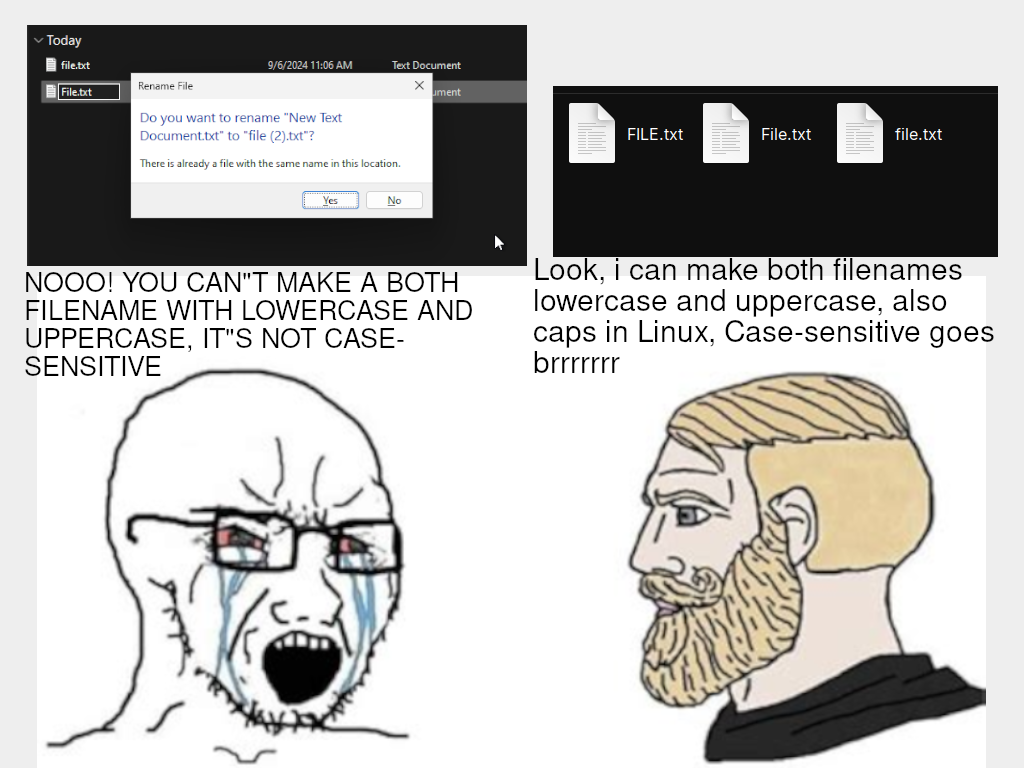this post was submitted on 06 Sep 2024
615 points (90.6% liked)
linuxmemes
21699 readers
2084 users here now
Hint: :q!
Sister communities:
Community rules (click to expand)
1. Follow the site-wide rules
- Instance-wide TOS: https://legal.lemmy.world/tos/
- Lemmy code of conduct: https://join-lemmy.org/docs/code_of_conduct.html
2. Be civil
- Understand the difference between a joke and an insult.
- Do not harrass or attack members of the community for any reason.
- Leave remarks of "peasantry" to the PCMR community. If you dislike an OS/service/application, attack the thing you dislike, not the individuals who use it. Some people may not have a choice.
- Bigotry will not be tolerated.
- These rules are somewhat loosened when the subject is a public figure. Still, do not attack their person or incite harrassment.
3. Post Linux-related content
- Including Unix and BSD.
- Non-Linux content is acceptable as long as it makes a reference to Linux. For example, the poorly made mockery of
sudoin Windows. - No porn. Even if you watch it on a Linux machine.
4. No recent reposts
- Everybody uses Arch btw, can't quit Vim, <loves/tolerates/hates> systemd, and wants to interject for a moment. You can stop now.
Please report posts and comments that break these rules!
Important: never execute code or follow advice that you don't understand or can't verify, especially here. The word of the day is credibility. This is a meme community -- even the most helpful comments might just be shitposts that can damage your system. Be aware, be smart, don't fork-bomb your computer.
founded 2 years ago
MODERATORS
you are viewing a single comment's thread
view the rest of the comments
view the rest of the comments

Nope. Completely different.
Case is often used to distinguish scope. Lowercase is local while uppercase is public. "Name = name" is a pretty standard convention, especially in constructors.
There is a ubiquitous use case in programming. There is not in the file system.
My point is not about how case is meant to be used my point is that it is very easy to make a mistake that is difficult to spot. I think it makes a lot more sense to the case insensitive, and force different names to be used.
This is the first time I've seen uppercase denoting scope. Usually it is done with a "_" or "__" prefix.
Casing styles usually mean different identifier types.
snake_case or pascalCase for functions and variables, CamelCase for types, UPPER_SNAKE_CASE for constants, and so on.
If we want to apply this to file systems, you could argue something like: CamelCase for directories, snake_case for files, pascalCase for symlinks, UPPER_SNAKE_CASE for hidden files.